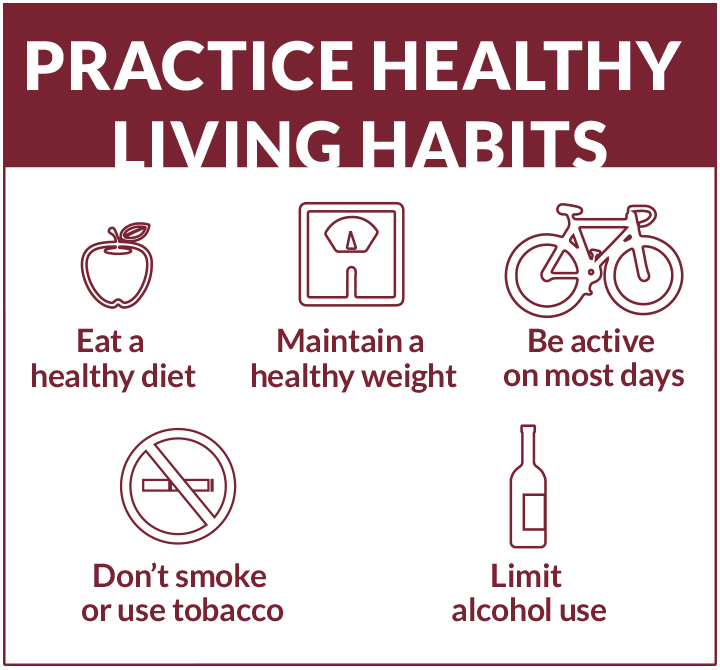We all know that exercise, a healthy weight and a smoke-free lifestyle can keep your heart healthy; but here are 5 more heart-saving practices you can do every day:
- Eat healthy fats, NOT trans fats.
Trans fats raise your bad cholesterol levels (LDL) and lower your good cholesterol levels (HDL). Trans fats are industry-produced fats often used in packaged baked goods, biscuits, frozen pizza, cookies, crackers, stick margarines and other spreads. Read the Nutrition Facts labels. - Floss and brush your teeth daily to ward off gum disease. Studies have shown that bacteria in the mouth involved in the development of gum disease can move into the bloodstream and cause an elevation in C-reactive protein, a marker for inflammation in the blood vessels. Learn about Dental Care at Canyonlands.
- Make sleep a priority. If you don’t sleep enough, you may be at a higher risk for cardiovascular disease no matter your age or other health habits. One study looking at 3,000 adults over the age of 45 found that those who slept fewer than six hours per night were about twice as likely to have a stroke or heart attack as people who slept six to eight hours per night.
- Don’t sit for too long at one time. Research suggests that staying seated for long periods of time is bad for your health no matter how much exercise you do. Take a few shorter walks throughout the day and/or use a standing work station. And remember to exercise on most days.
- Avoid secondhand smoke. According to the CDC, nonsmokers who breathe secondhand smoke at home or at work increase their risk of developing heart disease by 25–30%. Secondhand smoke increases the risk for stroke by 20−30%. Exposure to tobacco smoke contributes to about 34,000 premature heart disease deaths and 7,300 lung cancer deaths each year.

When we take care of #OurHearts as part of our self-care, we set an example for those around us to do the same.

An astounding 1 in 3 deaths in the United States is due to cardiovascular disease. More than 800,000 people die of cardiovascular disease every year in the United States.
Coronary Heart Disease
Coronary heart disease occurs when plaque (a combination of fat, cholesterol, calcium, and other substances found in the blood) builds up in your arteries. You may have heard this called clogged arteries or atherosclerosis.
Many of the people who are at high risk for heart attack or stroke don’t know it. The good news is that many of the major risks for these conditions can be prevented and controlled through healthy lifestyle changes.
How to Talk to Your Healthcare Professional about Cardiovascular Disease
The Mediterranean Diet is recommended by the Mayo Clinic for a healthy heart:
- Eat more fruits and vegetables. Aim for 7 to 10 servings a day of fruit and vegetables.
- Opt for whole grains. Switch to whole-grain bread, cereal and pasta. Experiment with other whole grains, such as bulgur and farro.
- Use healthy fats. Try olive oil as a replacement for butter when cooking. Instead of putting butter or margarine on bread, try dipping it in flavored olive oil.
- Eat more seafood. Eat fish twice a week. Fresh or water-packed tuna, salmon, trout, mackerel and herring are healthy choices. Grilled fish tastes good and requires little cleanup. Avoid deep-fried fish.
- Reduce red meat. Substitute fish, poultry or beans for meat. If you eat meat, make sure it’s lean and keep portions small.
- Enjoy some dairy. Eat low-fat Greek or plain yogurt and small amounts of a variety of cheeses.
- Spice it up. Herbs and spices boost flavor and lessen the need for salt.






